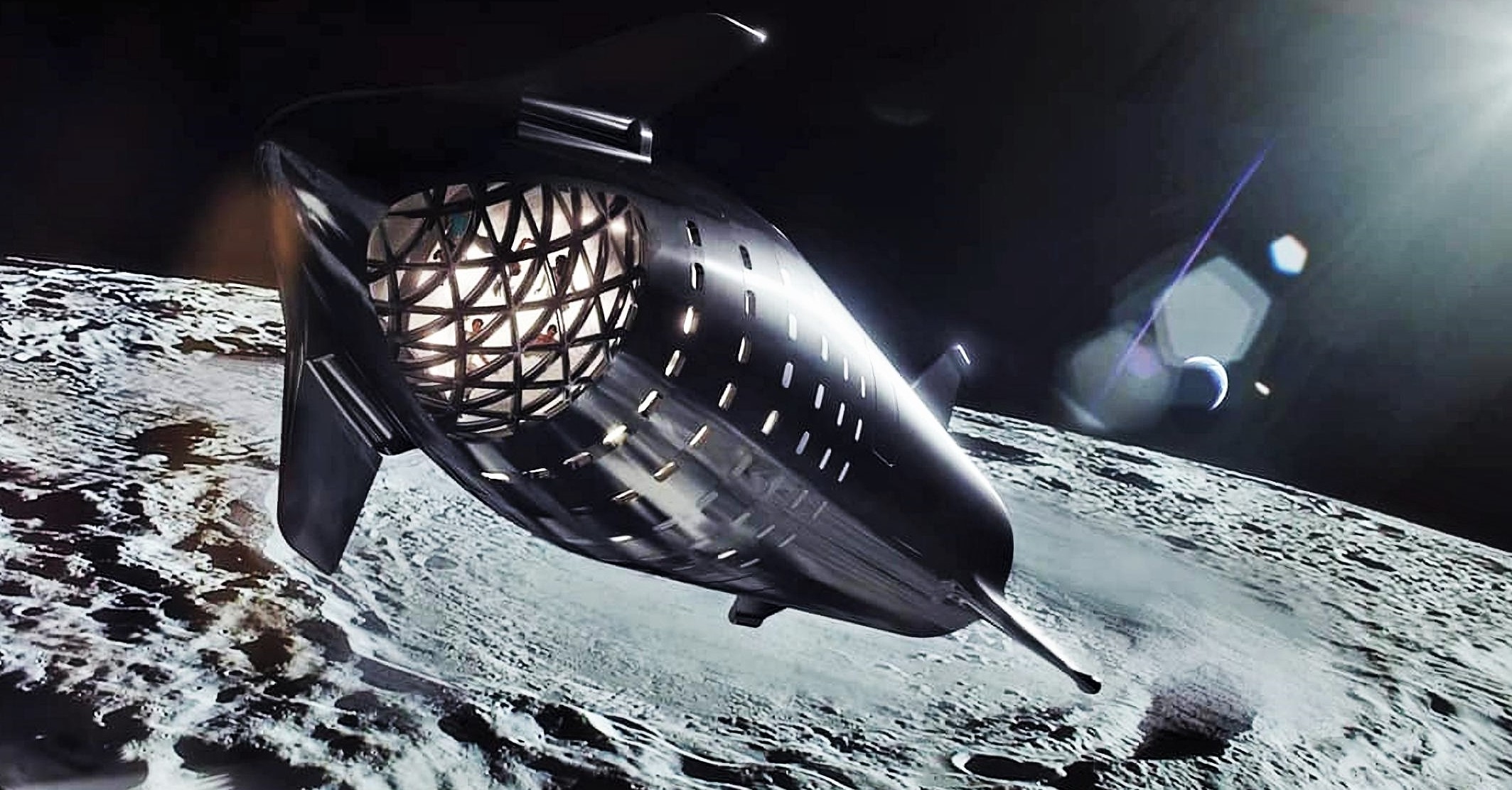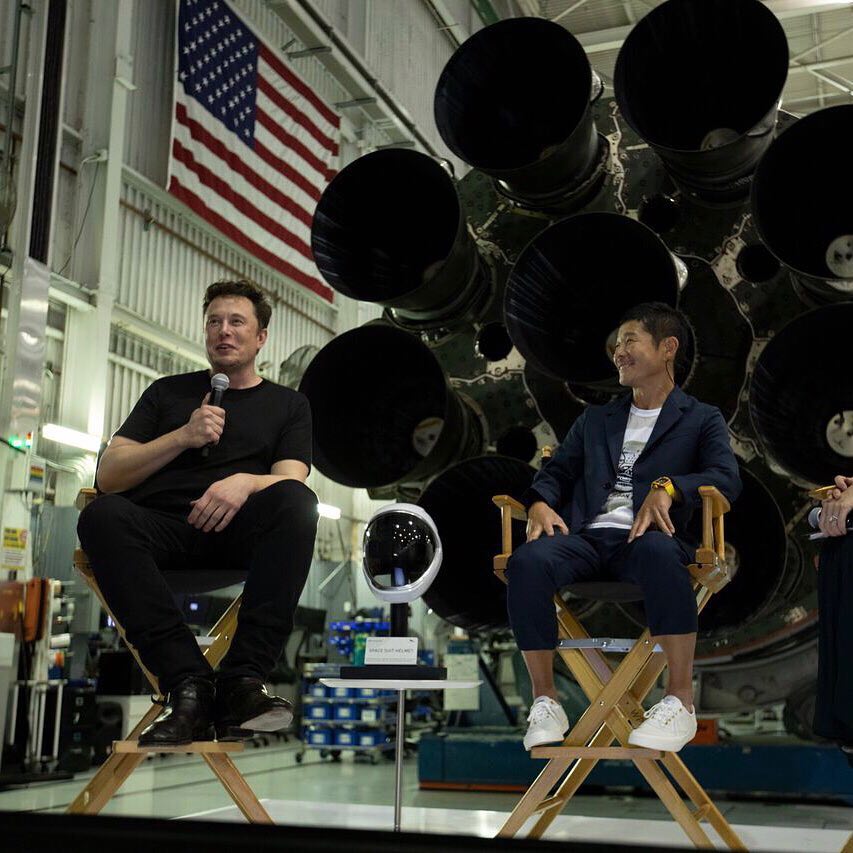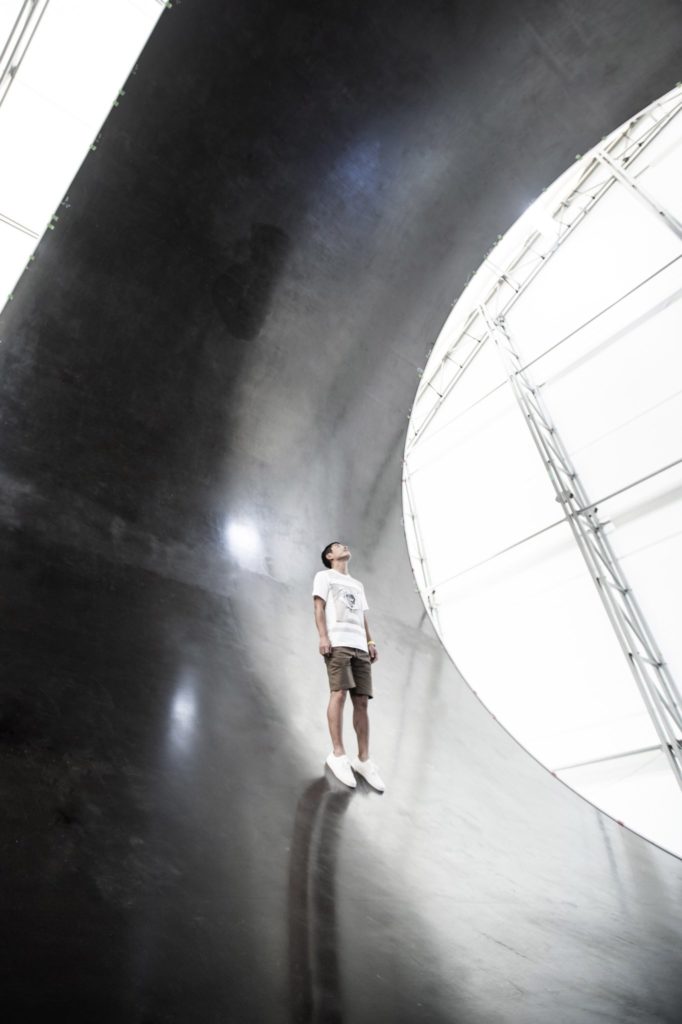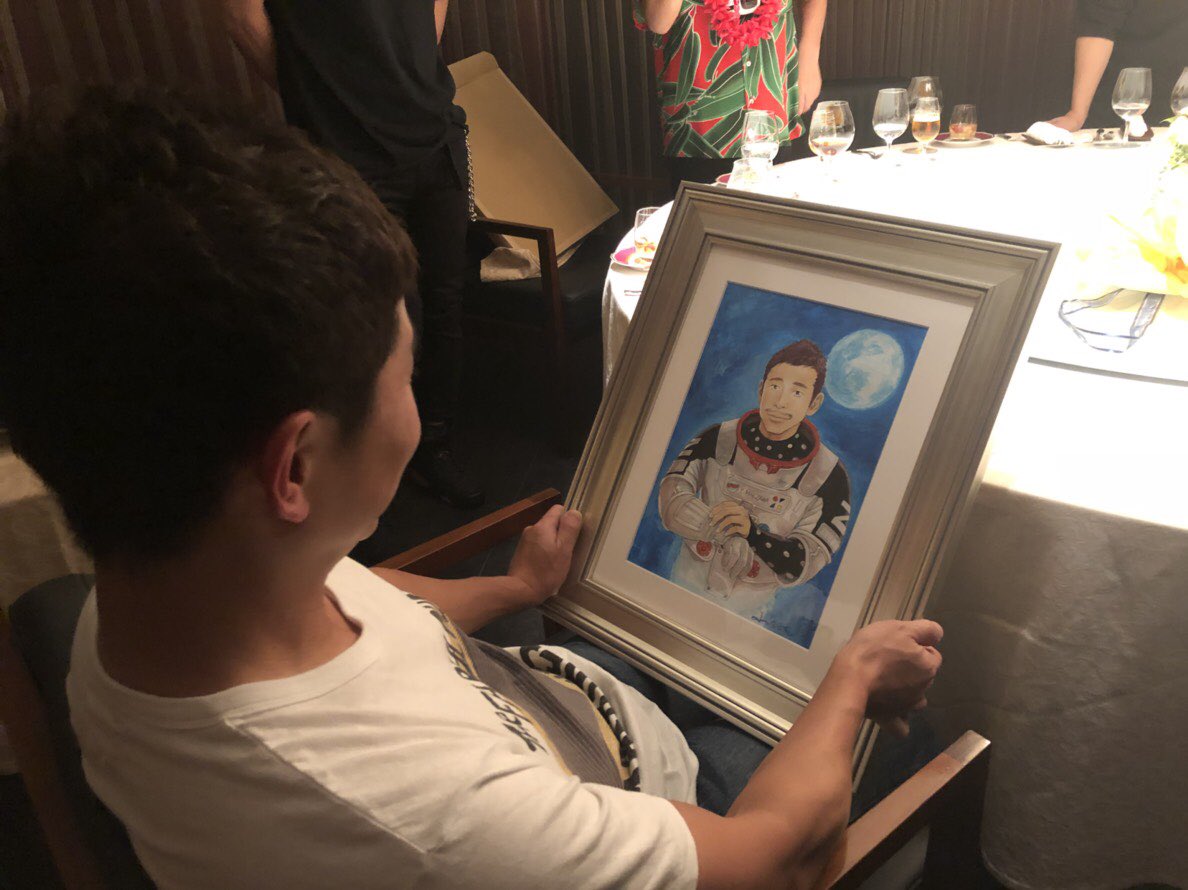

News
Billionaire resigns CEO role to pay, train for SpaceX’s first crewed Starship Moon launch
Eccentric Japanese billionaire Yusaku Maezawa — known for collecting modern art and founding online fashion retailer Zozo — has stepped down as CEO to free up time and money for his privately-chartered launch around the moon.
Set to launch no earlier than 2023 on what is expected to be SpaceX’s first crewed, circumlunar Starship launch, Maezawa stated in September 2018 that he had arranged to pay SpaceX a huge amount of money (likely several hundred million dollars) for that right. Along with resigning as CEO of Zozo, Maezawa will sell ~85% of his 36% stake to Yahoo Japan, giving the conglomerate a 50.1% ownership stake of Zozo and Maezawa a $2.3 billion cash windfall.
As noted by Business Insider, when asked by a follower if he had any money after an announcement that he would sell off a portion of his extensive art collection in a Sotheby’s auction, Maezawa admitted that he frequently has “no money” because he spends it “right away”, inadvisable but admittedly in-line with his eccentric reputation.
The resignation and sale comes just weeks after SpaceX successfully completed Starhopper’s second and final launch, reaching an altitude of ~150m (500 ft) with the power of a single Raptor engine. During a September 2018 SpaceX press event, Maezawa announced that he had come to an agreement with the company to buy the entirety of Starship’s first crewed mission around the Moon. The billionaire’s motivation: gifting the 8-10 available ‘seats’ to some of the best artists in the world in a project known as dearMoon.

At the same event, SpaceX CEO Elon Musk estimated that the company’s Starship program would cost anwhere from $2B- $10B and confirmed that the bulk of Maezawa’s contributions would go directly towards the rocket’s development costs. Business Insider also quotes Musk as stating that “[Maezawa is] paying a lot of money that would help with the ship and its booster – ultimately paying for the average citizen to travel to other planets.” Alongside Yusaku’s frank Twitter acknowledgment that he may not be the most financially responsible individual and repeated indications that he is extremely proud of Zozo, it’s safe to surmise that the decision to resign was not easily made.
More likely than not, now that SpaceX has completed its Starhopper flight program and is on the verge of its first Starship prototype flight tests, Maezawa simply needs money – and a huge amount of it – to continue fulfilling his contractual commitment to SpaceX. Even if a significant portion of the $2.2-2.3B cash payout he is set to receive goes to settling old debts, the Japanese billionaire should now have more than enough assets to fully fund his SpaceX contract.

At the time, SpaceX had partially completed pieces of the megarocket – then referred to as BFR – in a makeshift development facility at the Port of Los Angeles, pictured above with Maezawa. Since then, SpaceX has renamed the rocket to Starship, drastically redesigned it, and relocated all production operations to Hawthorne, CA, Boca Chica, Texas, and Cocoa, Florida.
Currently, SpaceX is developing twin Starship prototypes at launch and landing test facilities in Boca Chica, Texas (“Mk1”) and in Cocoa, FL (“Mk2”). Musk recently visited the facilities and announced that he is planning to present a technical Starship development update as early as September 28th.
According to an interview posted on WWDJapan.com as part of a September 12th Zozo press conference, Maezawa explained that he believes he made some missteps while serving as Zozo CEO, negatively affecting the company’s bottom line. He believes that more team-oriented business practices and a change of leadership could help to improve the company, which is currently holding its head well above water but still likely to far fall behind its FY2019 performance goals. It’s also hoped that selling an ownership stake in the company will give Yahoo Japan the flexibility to grow Zozo and improve its global reach.
The role of Zozo CEO now goes to Kotaro Sawada who accompanied Maezawa on stage at the announcement event along with Yahoo Japan’s president, Kentaro Kawamata. According to Forbes.com Maezawa stated that “Sawada is the exact opposite of my instinct-based management and adept at management based on logic, like crunching data and testing things out first.”
While Yahoo Japan will look to expand Zozo and the associated online shopping mall Zozotown to compete with other online retailers such as Amazon and Rakuten, Maezawa says that he will turn his attention to achieving his personal goal of a trip around the moon. He mentioned that he plans to fly to space prior to his circumlunar flight in 2023 and will spend much of his time training and learning foreign languages for spaceflight.
He also plans to pursue building another company from the ground up. Whether his next company will be an endeavor focused around space tourism remains to be seen.
Check out Teslarati’s Marketplace! We offer Tesla accessories, including for the Tesla Cybertruck and Tesla Model 3.
Elon Musk
Tesla reveals it is using AI to make factories more sustainable: here’s how
Tesla is using AI in its Gigafactory Nevada factory to improve HVAC efficiency.

Tesla has revealed in its Extended Impact Report for 2024 that it is using Artificial Intelligence (AI) to enable its factories to be more sustainable. One example it used was its achievement of managing “the majority of the HVAC infrastructure at Gigafactory Nevada is now AI-controlled” last year.
In a commitment to becoming more efficient and making its production as eco-friendly as possible, Tesla has been working for years to find solutions to reduce energy consumption in its factories.
For example, in 2023, Tesla implemented optimization controls in the plastics and paint shops located at Gigafactory Texas, which increased the efficiency of natural gas consumption. Tesla plans to phase out natural gas use across its factories eventually, but for now, it prioritizes work to reduce emissions from that energy source specifically.
It also uses Hygrometric Control Logic for Air Handling Units at Giafactory Berlin, resulting in 17,000 MWh in energy savings each year. At Gigafactory Nevada, Tesla saves 9.5 GWh of energy through the use of N-Methylpyrrolidone refineries when extracting critical raw material.
Perhaps the most interesting way Tesla is conserving energy is through the use of AI at Gigafactory Nevada, as it describes its use of AI to reduce energy demand:
“In 2023, AI Control for HVAC was expanded from Nevada and Texas to now include our Berlin-Brandenburg and Fremont factories. AI Control policy enables HVAC systems within each factory to work together to process sensor data, model factory dynamics, and apply control actions that safely minimize the energy required to support production. In 2024, this system achieved two milestones: the majority of HVAC infrastructure at Gigafactory Nevada is now AI-controlled, reducing fan and thermal energy demand; and the AI algorithm was extended to manage entire chiller plants, creating a closed-loop control system that optimizes both chilled water consumption and the energy required for its generation, all while maintaining factory conditions.”
Tesla utilizes AI Control “primarily on systems that heat or cool critical factory production spaces and equipment.” AI Control communicates with the preexisting standard control logic of each system, and any issues can be resolved by quickly reverting back to standard control. There were none in 2024.
Tesla says that it is utilizing AI to drive impact at its factories, and it has proven to be a valuable tool in reducing energy consumption at one of its facilities.
Elon Musk
Tesla analysts believe Musk and Trump feud will pass
Tesla CEO Elon Musk and U.S. President Donald Trump’s feud shall pass, several bulls say.

Tesla analysts are breaking down the current feud between CEO Elon Musk and U.S. President Donald Trump, as the two continue to disagree on the “Big Beautiful Bill” and its impact on the country’s national debt.
Musk, who headed the Department of Government Efficiency (DOGE) under the Trump Administration, left his post in May. Soon thereafter, he and President Trump entered a very public and verbal disagreement, where things turned sour. They reconciled to an extent, and things seemed to be in the past.
However, the second disagreement between the two started on Monday, as Musk continued to push back on the “Big Beautiful Bill” that the Trump administration is attempting to sign into law. It would, by Musk’s estimation, increase spending and reverse the work DOGE did to trim the deficit.
Every member of Congress who campaigned on reducing government spending and then immediately voted for the biggest debt increase in history should hang their head in shame!
And they will lose their primary next year if it is the last thing I do on this Earth.
— Elon Musk (@elonmusk) June 30, 2025
President Trump has hinted that DOGE could be “the monster” that “eats Elon,” threatening to end the subsidies that SpaceX and Tesla receive. Musk has not been opposed to ending government subsidies for companies, including his own, as long as they are all abolished.
How Tesla could benefit from the ‘Big Beautiful Bill’ that axes EV subsidies
Despite this contentious back-and-forth between the two, analysts are sharing their opinions now, and a few of the more bullish Tesla observers are convinced that this feud will pass, Trump and Musk will resolve their differences as they have before, and things will return to normal.
ARK Invest’s Cathie Wood said this morning that the feud between Musk and Trump is another example of “this too shall pass:”
BREAKING: CATHIE WOOD SAYS — ELON AND TRUMP FEUD “WILL PASS” 👀 $TSLA
She remains bullish ! pic.twitter.com/w5rW2gfCkx
— TheSonOfWalkley (@TheSonOfWalkley) July 1, 2025
Additionally, Wedbush’s Dan Ives, in a note to investors this morning, said that the situation “will settle:”
“We believe this situation will settle and at the end of the day Musk needs Trump and Trump needs Musk given the AI Arms Race going on between the US and China. The jabs between Musk and Trump will continue as the Budget rolls through Congress but Tesla investors want Musk to focus on driving Tesla and stop this political angle…which has turned into a life of its own in a roller coaster ride since the November elections.”
Tesla shares are down about 5 percent at 3:10 p.m. on the East Coast.
Elon Musk
Tesla scrambles after Musk sidekick exit, CEO takes over sales
Tesla CEO Elon Musk is reportedly overseeing sales in North America and Europe, Bloomberg reports.

Tesla scrambled its executives around following the exit of CEO Elon Musk’s sidekick last week, Omead Afshar. Afshar was relieved of his duties as Head of Sales for both North America and Europe.
Bloomberg is reporting that Musk is now overseeing both regions for sales, according to sources familiar with the matter. Afshar left the company last week, likely due to slow sales in both markets, ending a seven-year term with the electric automaker.
Tesla’s Omead Afshar, known as Elon Musk’s right-hand man, leaves company: reports
Afshar was promoted to the role late last year as Musk was becoming more involved in the road to the White House with President Donald Trump.
Afshar, whose LinkedIn account stated he was working within the “Office of the CEO,” was known as Musk’s right-hand man for years.
Additionally, Tom Zhu, currently the Senior Vice President of Automotive at Tesla, will oversee sales in Asia, according to the report.
It is a scramble by Tesla to get the company’s proven executives over the pain points the automaker has found halfway through the year. Sales are looking to be close to the 1.8 million vehicles the company delivered in both of the past two years.
Tesla is pivoting to pay more attention to the struggling automotive sales that it has felt over the past six months. Although it is still performing well and is the best-selling EV maker by a long way, it is struggling to find growth despite redesigning its vehicles and launching new tech and improvements within them.
The company is also looking to focus more on its deployment of autonomous tech, especially as it recently launched its Robotaxi platform in Austin just over a week ago.
However, while this is the long-term catalyst for Tesla, sales still need some work, and it appears the company’s strategy is to put its biggest guns on its biggest problems.
-

 Elon Musk1 day ago
Elon Musk1 day agoTesla investors will be shocked by Jim Cramer’s latest assessment
-

 News7 days ago
News7 days agoTesla Robotaxi’s biggest challenge seems to be this one thing
-

 News2 weeks ago
News2 weeks agoTesla’s Grok integration will be more realistic with this cool feature
-

 Elon Musk2 weeks ago
Elon Musk2 weeks agoElon Musk slams Bloomberg’s shocking xAI cash burn claims
-

 News2 weeks ago
News2 weeks agoTesla China roars back with highest vehicle registrations this Q2 so far
-

 News2 weeks ago
News2 weeks agoTexas lawmakers urge Tesla to delay Austin robotaxi launch to September
-

 News2 weeks ago
News2 weeks agoTesla dominates Cars.com’s Made in America Index with clean sweep
-

 Elon Musk1 week ago
Elon Musk1 week agoFirst Look at Tesla’s Robotaxi App: features, design, and more





















